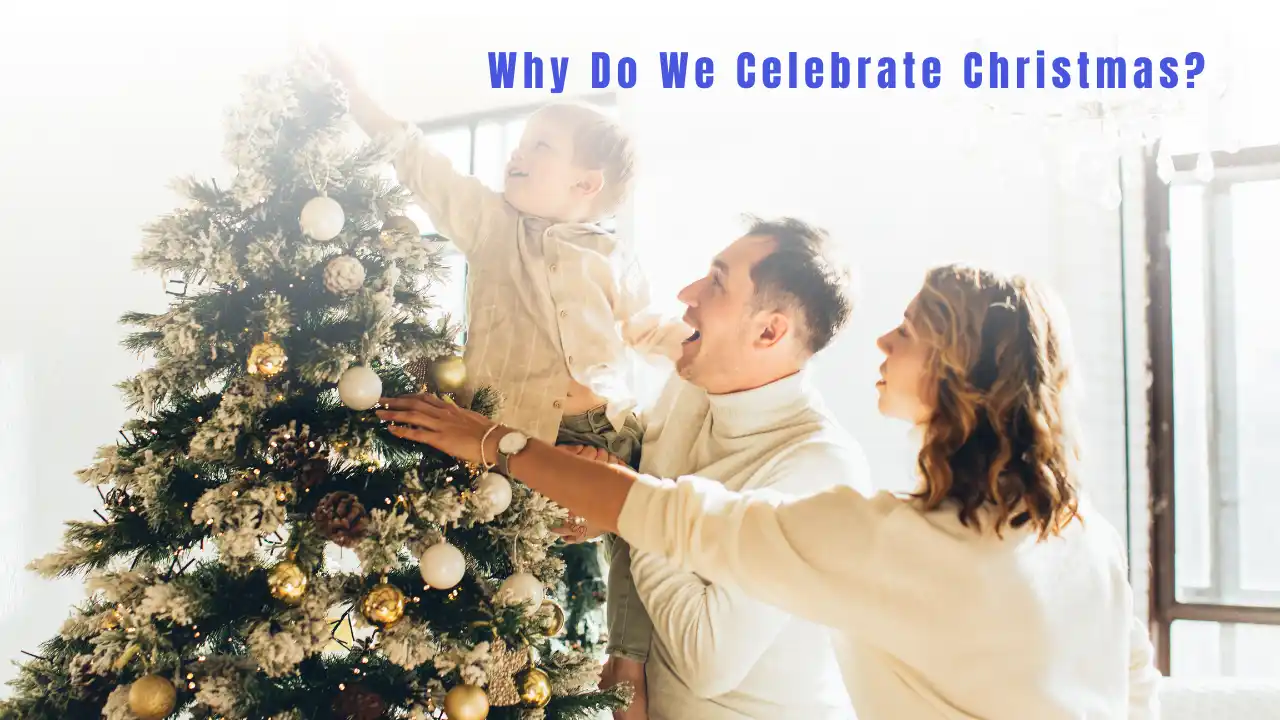Christmas is one of the most widely celebrated holidays around the world, filled with joy, lights, music, and togetherness. But why do we celebrate Christmas, really? For some, it’s a deeply religious event. For others, it’s a time for family, food, and festivities.
In this article, we’ll dive into the true meaning of Christmas, its historical origins, religious and cultural significance, and how traditions have evolved over time.
The Origin of Christmas: A Christian Celebration
At its core, Christmas is a Christian festival commemorating the birth of Jesus Christ, believed to be the Son of God. Though the exact date of His birth is unknown, December 25 was chosen by early Christians in the 4th century, aligning it with existing Roman festivals like Saturnalia and Sol Invictus to make the transition easier for converts.
For Christians, this day marks a divine miracle—the arrival of the Savior—and is celebrated with church services, nativity plays, and readings from the Bible, especially the Gospels of Matthew and Luke.
Christmas Beyond Religion: A Global Cultural Holiday
While Christmas has Christian roots, it’s become a global cultural phenomenon celebrated by people of various beliefs.
Here’s why Christmas is celebrated today by people around the world:
- Family and togetherness: A time to reconnect and celebrate with loved ones
- Gift-giving: Symbolizing the gifts brought to Jesus by the Magi
- Kindness and generosity: Echoing the spirit of goodwill
- Seasonal joy: Bright lights and festivities during the darkest time of the year in the Northern Hemisphere
Even in non-Christian majority countries, many people observe Christmas as a secular holiday with decorated trees, holiday meals, and exchange of presents.
Religious Significance: Jesus Christ’s Birth
The central meaning of Christmas for Christians is the celebration of the birth of Jesus, whom they believe is the Son of God and the light of the world.
The nativity story includes:
- Mary and Joseph’s journey to Bethlehem
- Jesus’ birth in a manger
- Angelic announcements to shepherds
- Visits from the Three Wise Men
These stories are re-enacted through nativity scenes, songs like “Silent Night,” and church gatherings on Christmas Eve or Christmas morning.
How Christmas Traditions Evolved Over Time
Many of today’s beloved Christmas traditions have blended Christian, pagan, and modern customs:
| Tradition | Origin |
|---|---|
| Christmas tree | Pagan winter solstice rituals from Germany |
| Santa Claus | Based on Saint Nicholas, a 4th-century Christian bishop |
| Gift-giving | Inspired by the Magi and Saint Nicholas’ charity |
| Yule log, wreaths | From Norse and Celtic winter celebrations |
| Carols and songs | Christian hymns mixed with folk tunes |
Modern Christmas: More Than a Religious Holiday
In today’s world, Christmas is more than just a religious festival. It’s:
- A season of generosity and charity
- A time for vacations and celebrations
- A huge part of the global economy (retail, entertainment, travel)
- A cultural event that promotes values like hope, peace, and unity
From watching Christmas movies to baking cookies and writing letters to Santa, the modern celebration of Christmas is deeply personalized and diverse.
FAQs on Why Do We Celebrate Christmas?
Why do we celebrate Christmas?
We celebrate Christmas to honor the birth of Jesus Christ, who is believed by Christians to be the Son of God. It’s also widely celebrated as a cultural holiday symbolizing love, giving, and unity.
Is Christmas only a religious holiday?
While Christmas originated as a Christian holiday, it is now celebrated by people of many cultures and religions around the world as a secular holiday focused on family, generosity, and joy.
Why is Christmas celebrated on December 25th?
The date was chosen in the 4th century to align with existing Roman festivals like Saturnalia, though the exact birth date of Jesus is not known.
What are common traditions during Christmas?
Popular traditions include decorating Christmas trees, exchanging gifts, singing carols, attending church services, and enjoying festive meals with family.
How did Santa Claus become part of Christmas?
Santa Claus is based on Saint Nicholas, a Christian bishop known for giving gifts to the poor. His legend evolved into the jolly figure we know today.
Do non-Christians celebrate Christmas?
Yes, many non-Christians celebrate Christmas as a secular holiday for its themes of joy, generosity, and family togetherness.
